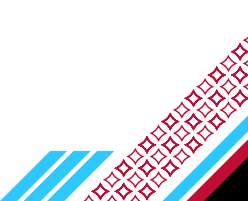Community Concerns Response Team (CCRT)
The Community Concerns Response Team (CCRT) at UWRF is a team dedicated to addressing discrimination concerns that impact the campus community. The CCRT provides a structured process for reporting, reviewing, and responding to acts that may create a hostile or offensive environment based on factors like race, gender identity, religion, sexual orientation or other protected categories.
How do I file a report?
You may file a report of discrimination via our CCRT Reporting Form. Please share as much information as you can when filing your report and include any supplemental documentation such as photos, screenshots, or emails. You may choose to remain anonymous, but please know that anonymous reporting may limit our ability to respond to concerns.
How does UWRF define discrimination?
As defined in UWRF's AP-01-125, discrimination is, "conduct that adversely affects any aspect of an individual's employment, education, or participation in an institution's activities or programs, or has the effect of denying equal privileges or treatment to an individual on the basis of one or more characteristics of that individual's protected status or category."
- The above definition is used for reporting and statistical purposes only. It carries no independent sanctioning weight or authority.
What is discriminatory harassment?
Discriminatory Harassment is a form of discrimination consisting of unwelcome verbal, written, graphic or physical conduct that:
- Is directed at an individual or group of individuals on the basis of the individual or group of individuals' actual or perceived status, or affiliation with person(s) within a protected status, and
- Is sufficiently severe or pervasive so as to interfere with an individual's employment, education or academic environment or participation in institution programs or activities and creates a working, learning, program or activity environment environment that a reasonable person would find intimidating, offensive or hostile.
To constitute prohibited harassment, the conduct must be both objectively and subjectively harassing in nature. Harassment may include but is not limited to vernal or physical assaults, threats, slurs or derogatory or offensive comments that meet the definition set forth in AP-01-125. Harassment does not have to be targeted at a particular individual in order to create a harassing environment, nor must the conduct result in a tangible injury to be considered a violation of UWRF policy.
Whether the alleged conduct constitutes prohibited harassment depends on the totality of the circumstances, including the nature, frequency and duration of the conduct in question, the location and context in which it occurs, and the status of the individuals involved.
What is a protected status?
The term "protected status" refers to one or more of an individual's characteristics that are protected under state or federal law, or under university policy. Concerns arise when someone experiences adverse action or behavior because of their protected status. It is also possible for discrimination to occur because someone believes another person is a member of a protected group, even if they aren't.
UWRF considers the following to be a protected status:
- Race
- Color
- Creed
- Religion
- Age
- Sex
- Sexual orientation
- Gender identity or expression
- National origin
- Ancestry
- Disability
- Pregnancy
- Marital or parental status
- Any other category protected by law, including physical condition or developmental disability as defined in Wisconsin Statutes § 51.01(5)
Examples (not an all inclusive list)
- Slurs
- Degrading language
- Epithets
- Graffiti
- Vandalism
- Intimidation
- Symbols
- Harassment
What if I experience discrimination that isn't a policy violation?
Some incidents may not fall within the scope of discriminatory harassment, but that doesn't mean they cannot be address. The CCRT has options available for UWRF community members who wish to report discrimination on campus. These options are non-punitive and typically restorative in nature. The CCRT will reach out to you after you file a report to discuss your options.
Freedom of Expression
- Although the expression of an idea or point of view may be offensive or inflammatory to some, it is not necessarily a violation of law or university policy.
- The university values and embraces the ideals of freedom of inquiry, freedom of thought and freedom of expression, all of which must be vitally sustained in a community of scholars.
- While these freedoms protect controversial ideas and differing views, and sometimes even offensive and hurtful words, they do not protect acts of misconduct that violate criminal law or university policy.
- Incidents of discrimination contribute to a hostile campus environment and can occur even if the act itself is unintentional or delivered as a joke, prank or having humorous intent.
- It is possible that one can express themselves freely and also not meet our university's values. If this occurs, it is possible that someone from the CCRT will reach out to have a conversation about freedom of expression, community impact and university values
CCRT Members
- April Chaney: Chair, Title IX Coordinator
- Michael Gilmer: Assistant Chancellor for Student Affairs and Strategic Enrollment, Dean of Students
- Crystal Lanning: Athletics Director
- Cara Rubis: Director, Residence Life
- LP Barnes: Assistant Director of Residence Life
- Dina Fassino: Director, University Communications and Marketing
- Wes Chapin: Interim Provost and Vice Chancellor for Academic Affairs
- Cyndi Kernahan: Director, Center for Excellence in Teaching and Learning; Professor of Psychology
- Michelle Benedict: Chief Human Resources Officer

